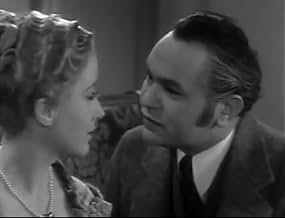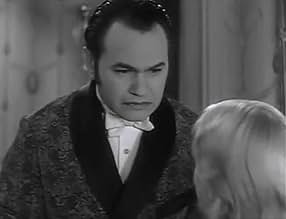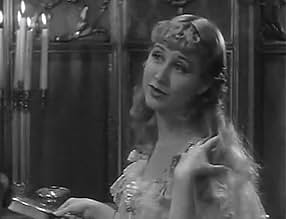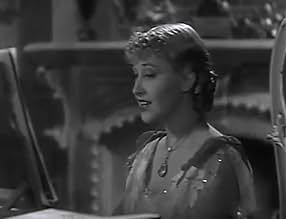Ajouter une intrigue dans votre langueArt student John Hayden interrupts his studies in Greece to head his father's meat packing business on his father's death. He marries social climber Martha who taunts him for his ideals rega... Tout lireArt student John Hayden interrupts his studies in Greece to head his father's meat packing business on his father's death. He marries social climber Martha who taunts him for his ideals regarding worker happiness and meat purity. He begins supporting the musical career of singer ... Tout lireArt student John Hayden interrupts his studies in Greece to head his father's meat packing business on his father's death. He marries social climber Martha who taunts him for his ideals regarding worker happiness and meat purity. He begins supporting the musical career of singer Laura. During the Spanish American war he sells the Army tainted meat. Martha puts detecti... Tout lire
- Réalisation
- Scénario
- Casting principal
- Récompenses
- 2 victoires au total
- Banker
- (non crédité)
- Doctor
- (non crédité)
- Banker
- (non crédité)
- Hayden's First Butler
- (non crédité)
- Voting Returns Announcer
- (non crédité)
Avis à la une
It's still worth it to see Robinson, Francis, and the other actors as they appeared in 1933.
The plot was not perfect and needed some paring down, and the ending left something to be desired, but this is a film you should see.
There are some unfortunate sequences in which the dialog becomes florid, stilted, and too much in the manner of a lesser Victorian romance. And the use of "Home On The Range" as a Rosebud motif comes across as ludicrous, to put it charitably. Such flaws, however, do not seriously lessen the impact and entertainment value of this undeservedly obscure picture.
I have to admit I was less impressed with this film than the first person who commented. First of all, with all of the beautiful operatic music in the world, why is the only song Laura sings "Home on the Range" - many times? Okay, I get the cattle theme but it was too much. And I didn't understand John suddenly becoming this ruthless man willing to send to soldiers overseas bad meat with fillers and other substances. Laura gives him one little lecture, and he turns into a third world dictator.
Robinson is very good, though he and Francis wear a lot of makeup. The characters, however, weren't especially likable or sympathetic. John does have the audience's sympathy at the beginning and at the very end, where Robinson's acting really stood out.
But when they reach an hour and a half, they sometimes bog down and become as dull as the inane films the Production Code later foisted on us.
This film is a good example. The history of Edward G. Robinson's transformation from a young idealist inheriting his father's meat-packing business to a ruthless capitalist defies credulity both for his naivete and the ease of his rise to the top when he discards his scruples. The characters are mostly one-dimensional stereotypes. The character of his opera star mistress, a somewhat miscast Kay Francis, who eggs him on with Nietzschean pep talks about dominating the world, sounds like Ayn Rand on steroids.
All this is fine for the first hour or so, when the rapid succession of events keeps you guessing what will happen next and too busy to think about the logic of it all. The last half hour or so, about his well-deserved downfall, goes by much more slowly and grinds to an undramatic ending.
Still worth a look for pre-code fans for Robinson, Francis and other fine actors, but don't put it at the top of your list.
Edward G. Robinson stars as John Hayden. The film opens in 1892 with him as a young man buying up all the art he can find in Europe, when he is called home at his father's death to take over the family packing business in which he really has no interest. He falls in love with and marries the daughter of a rival packer (Genevieve Tobin) and finds her exciting and thinks she is a reformer, but she soon transforms into just another social climber and their romance cools. When that happens he falls in love with an ambitious opera singer (Kay Francis), and offers to build her an opera house??? Now tell me that Orson Welles the teenager was not in the front row of the theater, chowing down on popcorn, and thinking how he might spruce up this tale when he got his big chance?
The similarities between the tales end there, and it turns out Kay Francis' character is no Susan Alexander Kane, and also the ignored wife turns out to be more persistent and vindictive than Kane's wife. The film is ultimately a variation on a common Warner Brothers' Depression era theme - a cautionary tale against greed for greed's sake.
Kay Francis may be second billed, but ultimately Edward G. Robinson is the whole show. Since Robinson was two inches shorter than Francis, it looks like the director came up with all kinds of inventive ways for them to embrace and it not look like she was picking him up off the ground to kiss him. Finally, why would anybody think "Home on the Range" would be a good tune to be "our song" for any couple? It's all part of the wonderful weirdness that was early 30s Warner Brothers. Recommended for the novelty of it all.
Le saviez-vous
- AnecdotesAlthough a novel by David Karsner is credited onscreen as the source, none has been located; it may not have been published. However, David Karsner's biography "Silver Dollar: The Story of the Tabors" was made into a film the previous year, also starring Edward G. Robinson named Valet d'argent (1932).
- GaffesThe newspaper item "10 Years Ago Today" near the end of the film stated that Hayden fled to Greece on the same day that the Chicago White Sox defeated Detroit, 10-6. But an item next to it noted that it was the 50th anniversary of the death of Scottish physicist James Clerk-Maxwell, which occurred in November 1879. Because the baseball season in 1919 ended in September, the anniversary of the White Sox-Tigers game could not have been on the same date as the anniversary of Maxwell's death.
- Citations
Charles Lane: John, you're mad!
John Mansfield Hayden: Yes. Maybe I am mad. But it's madmen who run the world today.
- Bandes originalesHome on the Range
(1904) (uncredited)
Music by Daniel E. Kelley (1904)
Lyrics by Brewster M. Higley (1873)
Played during the opening credits and at the end
Played on piano and sung by Kay Francis
Whistled and sung a cappella by Edward G. Robinson twice
Reprised by Kay Francis twice
Played by a band at the election celebration
Played as background music often as a love theme for John and Laura
Meilleurs choix
Détails
- Date de sortie
- Pays d’origine
- Langue
- Aussi connu sous le nom de
- I Loved a Woman
- Lieux de tournage
- Société de production
- Voir plus de crédits d'entreprise sur IMDbPro
- Durée1 heure 30 minutes
- Couleur
- Mixage
- Rapport de forme
- 1.37 : 1
Contribuer à cette page



































